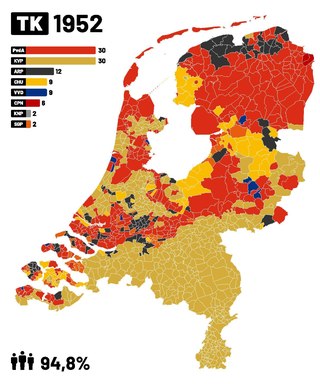
General elections were held in the Netherlands on 25 June 1952. The Catholic People's Party and the Labour Party both won 30 of the 100 seats in the House of Representatives. It was the first time since 1913 that the Catholic People's Party and its predecessors had not received a plurality of the vote.
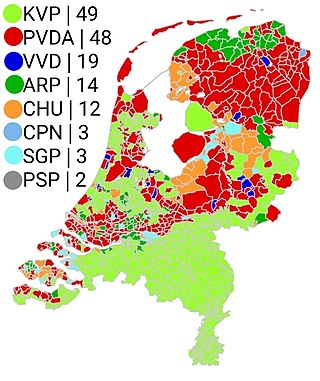
General elections were held in the Netherlands on 12 March 1959. The Catholic People's Party emerged as the largest party, winning 49 of the 150 seats in the House of Representatives.

Early parliamentary elections were held in Austria on 24 November 2002, after internal divisions in the Freedom Party of Austria (FPÖ) culminating in the Knittelfeld Putsch led to the resignation of several leading FPÖ members. The Austrian People's Party (ÖVP) emerged as the largest party, winning 79 of the 183 seats, the first time it had been the largest party in the National Council since 1966. It continued its coalition government with the FPÖ, which lost almost two-thirds of its seats. Voter turnout was 84%.
The Democratic Party is a centre-right political party in Bulgaria led by Alexander Pramatarski. The party was a member of the European People's Party (EPP).
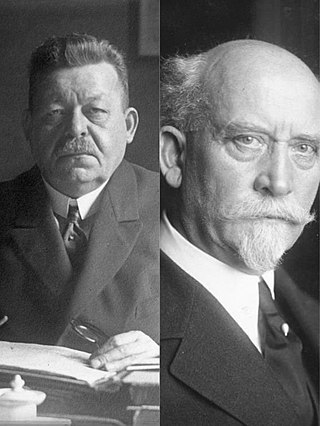
Federal elections were held in Germany on 19 January 1919, although members of the standing army in the east did not vote until 2 February. The elections were the first of the new Weimar Republic, which had been established after World War I and the Revolution of 1918–19, and the first with women's suffrage. The previous constituencies, which heavily overrepresented rural areas, were scrapped, and the elections held using a form of proportional representation. The voting age was also lowered from 25 to 20. Austrian citizens living in Germany were allowed to vote, with German citizens living in Austria being allowed to vote in the February 1919 Constitutional Assembly elections.
Parliamentary elections were held in Greece on 7 November 1926. The Liberal Union emerged as the largest faction in Parliament with 108 of the 286 seats. The composition of the new parliament meant that the parties and factions had to work together to form a viable parliamentary government. On Kafandaris' initiative, negotiations began among the main parties, leading to the swearing-in on the 4 December of a government under the premiership of Alexandros Zaimis who was not a member of parliament. The coalition consisted of the Liberal Union, the Democratic Union, the People's Party and the Freethinkers' Party. This government came to be known as the "Ecumenical government".
Parliamentary elections were held in Greece on 19 August 1928. The result was a victory for the Liberal Party, which won 178 of the 250 seats.
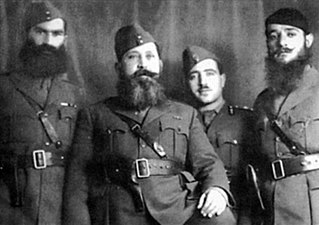
Parliamentary elections were held in Greece on 31 March 1946. The result was a victory for the United Alignment of Nationalists, an alliance that included the People's Party, the National Liberal Party, and the Reform Party, which won 206 of the 354 seats in Parliament. As a result, Konstantinos Tsaldaris became Prime Minister leading a right-wing coalition. Nonetheless, he soon decided to resign in favor of Themistoklis Sophoulis, who led a government of national unity during the entire second phase of the civil war (1946–1949). One of the priorities of the new government was the proclamation of a plebiscite for the restoration of the Greek monarchy.

Parliamentary elections were held in Greece on 5 March 1950. The People's Party emerged as the largest party in Parliament, winning 62 of the 250 seats.

General elections were held in Belgium on 31 March 1968. The Christian Social Party remained the largest party. Voter turnout was 90.0%. Elections for the nine provincial councils were also held.
Supreme Soviet election were held in the Soviet Union on 4 March 1979. They were the first elections held under the 1977 Soviet constitution, which slightly reformed the composition of the Supreme Soviet.

Full general elections were held in Belgium on 14 October 1894, with run-off elections held on 21 October 1894.
Parliamentary elections were held in Hungary on 19 March 1967. The Hungarian Socialist Workers' Party was the only party allowed to contest the elections, and won 259 of the 349 seats, with the remaining 90 going to independents selected by the party.

General elections were held in Liechtenstein on 11 March 1918, with a second round on 18 March. They were the first elections held in the country contested by political parties, as the Christian-Social People's Party and Progressive Citizens' Party had been founded that year. The Progressive Citizens' Party emerged as the largest in the Landtag, winning seven of the 12 elected seats.

General elections were held in Liechtenstein on 5 February 1922, with a second round on 16 February. They were the first elections held under the 1921 constitution, which resulted in some changes to the electoral system. The result was a victory for the opposition Christian-Social People's Party, which won 11 of the 15 seats.
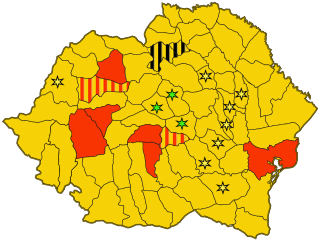
General elections were held in Romania in May and June 1926. The Chamber of Deputies was elected on 25 May, whilst the Senate was elected in two stages in May and 10 June. The result was a victory for the governing People's Party, which, together with the allied Romanian National Party, Magyar Party and German Party, won 292 of the 387 seats in the Chamber of Deputies and 107 of the 115 seats in the Senate elected through universal male vote. With some exceptions, the Peasants' Party and the main branch of the National Party ran on common lists under the name of National Peasant Bloc.
Parliamentary elections were held in Romania on 2 March 1969. The Front of Socialist Unity (FUS), which had been formed a year earlier to replace the People's Democratic Front (FDP), was the only organization that contested the election; no prospective candidate could run for office without the Front's prior approval. Like the People's Democratic Front, the Front of Socialist Unity was dominated by the Romanian Communist Party (PCR). The Front won all 465 seats in the Great National Assembly.

The People's Party was a political party in Bulgaria between 1894 and 1920.

The United Labour Social Democratic Party was a political party in Bulgaria.
Sweden held a general election on 20 September 1964.




















